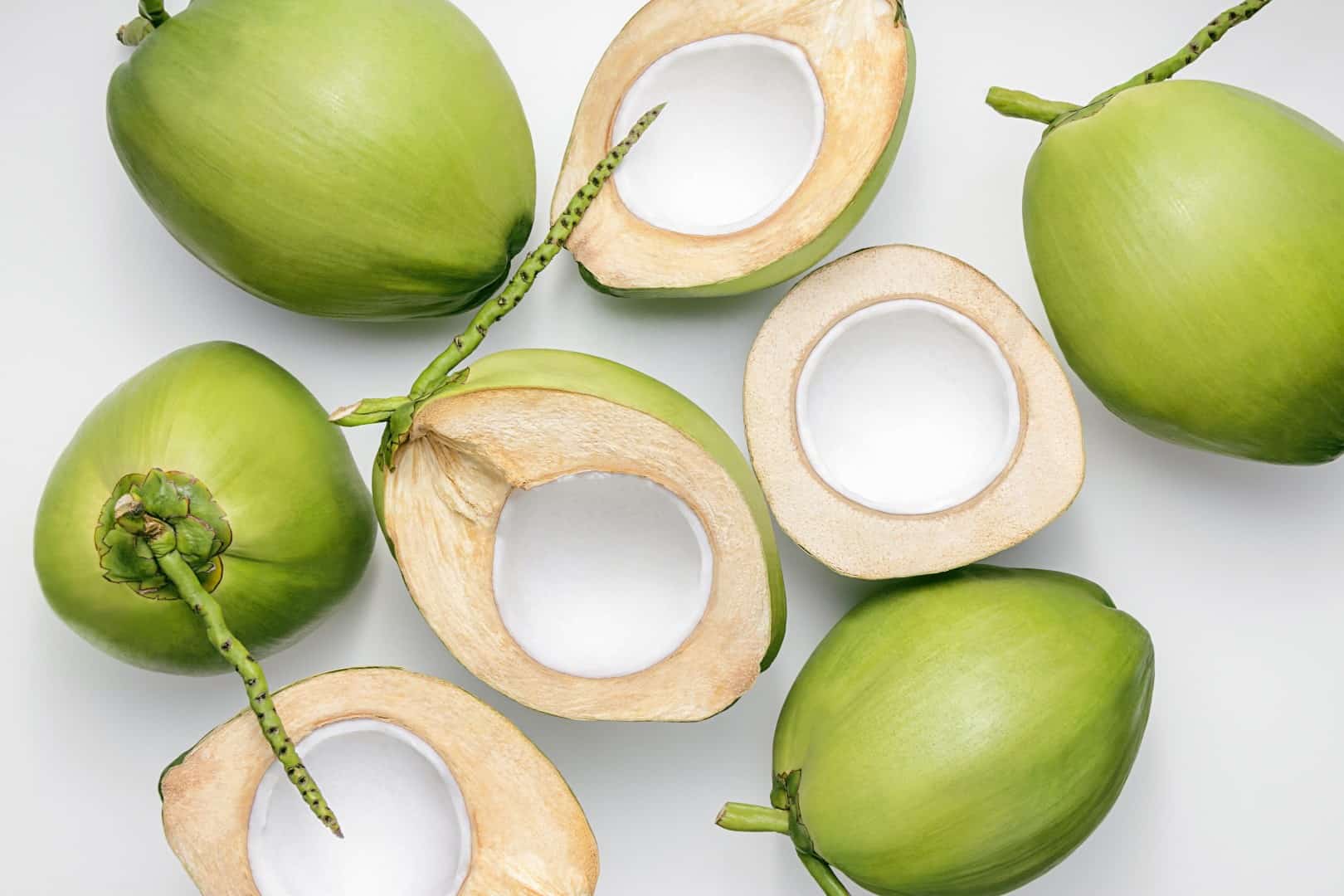
The coconut is the fruit of the coconut palm (Cocos Nucifera), which is prized for its water, milk, oil, and tasty meat. The fruit has flourished in tropical regions for more than 4,500 years but is recently enjoying a renaissance, thanks to its culinary uses and potential health benefits.
Coconut farming and production play a major role in the economy of the Philippines. As of 2019, the Philippines is the second largest producer of coconuts, second only to Indonesia. The Philippine Statistics Authority (PSA) reported that about 3.6 million hectares are planted all over the country, blanketing the landscape in 68 out of the 81 provinces. In the last quarter of 2020, the Davao region is still the top producer of coconuts with a 540.82 thousand metric ton output. That’s 13.3 % of total coconut production. This is followed by Northern Mindanao and the Zamboanga peninsula at 12.0% and 10.9% shares, respectively.
Although not indigenous to the Philippines, the coconut can be considered as God’s gift to Filipinos. It is called the “tree of life,” a moniker that couldn’t be truer in a country where the coconut industry provides livelihood for one-third of the total population, according to data from the Philippine Coconut Authority (PCA). While there are 3.5 million coconut farmers, about 25 million Filipinos are directly or indirectly dependent on the coconut industry. “Coconut is one of the two agricultural commodities that earns the country more than a billion dollars in export revenues every year,” according to Dr. William Dar, former Department of Agriculture secretary.
The Philippines has always exported copra (dried coconut meat kernel) which is an important agricultural commodity in the world. However, prices have gone down over the years due to oversupply of palm oil in the world market. To remedy this drop in gross export income, savvy coconut producers have gone into developing other ways to add value to their crop.
Coconut sugar is a product that is relatively easy to process and has gained popularity for its relatively neutral flavor and low glycemic index, making it a good alternative sweetener for diabetics. Producing coconut sugar is a simple process of heat evaporation to convert liquid sap into sugar granules. It requires no complicated and expensive machineries, making it a cost-effective and low-risk investment.
Virgin Coconut Oil (VCO) is a product that has become increasingly popular in natural food circles and among vegans. It is extracted through pressing without the use of heat and does not undergo chemical refining, bleaching, or deodorizing which leads to the alteration of the oil. People prefer using this for personal care purposes like oil-pulling, skin moisturizing, as well as drinking. VCO is also favored for baking and sautéing because of its milder, nutty flavor compared to coconut oil’s more fragrant and pronounced aroma.
Drinking coconut water has also become a popular alternative to sports drinks abroad and has huge potential in becoming a hundred-million-dollar industry. It contains the nutrients that are lost in physical exertion and sweating, and being an isotonic beverage, it is readily absorbed into the body preventing dehydration.
Coconut water and coconut sap can be processed into vinegar, which has always been one of the main sources of income of coconut farmers. Aside from its obvious uses for cooking and as a condiment, vinegar also has health benefits such as treating allergies, balancing alkali, promoting hair growth, burning fat, and improving gut health, among others.
The coconut industry in the Philippines is one of the oldest and most underutilized in recent years. It truly is time to once again give it the attention it deserves.

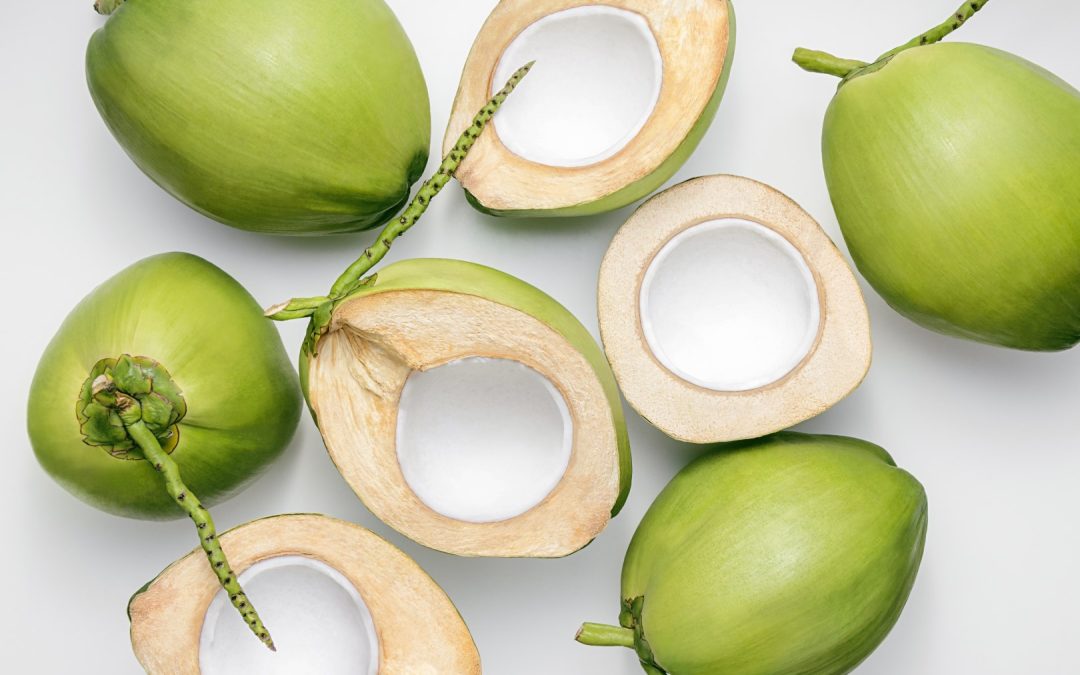

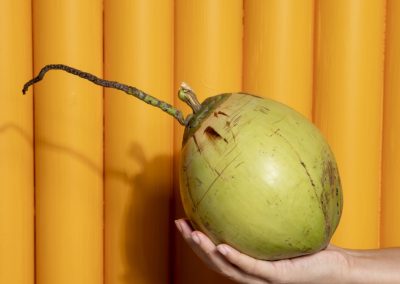

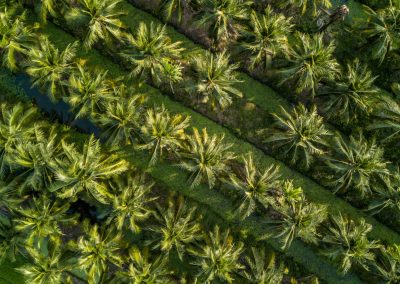
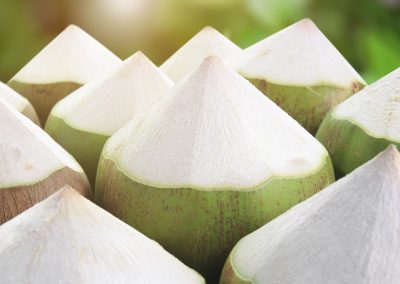
Recent Comments